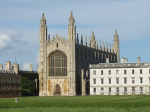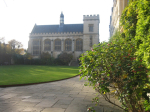
Culture
-
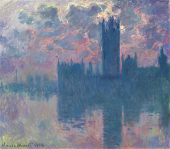 Fake Monet and Renoir paintings detected on eBay using AI
Up to 40 counterfeit paintings, including alleged works by Monet and Renoir, have been identified for sale on eBay, according to research conducted by Dr. Carina Popovici, an expertRead More...
Fake Monet and Renoir paintings detected on eBay using AI
Up to 40 counterfeit paintings, including alleged works by Monet and Renoir, have been identified for sale on eBay, according to research conducted by Dr. Carina Popovici, an expertRead More... -
 Pippa Middleton and James Matthews unveil lodge at Bucklebury Farm
Pippa Middleton and her billionaire husband James Matthews have inaugurated the lodge at Bucklebury Farm Park in Berkshire, offering a venue for parties, events, and Pilates sessions.Read More...
Pippa Middleton and James Matthews unveil lodge at Bucklebury Farm
Pippa Middleton and her billionaire husband James Matthews have inaugurated the lodge at Bucklebury Farm Park in Berkshire, offering a venue for parties, events, and Pilates sessions.Read More... -
 Five British museums nominated for prestigious arts prize
Museums across Skipton, Dundee, Manchester, and London are vying for the esteemed title of Museum of the Year 2024.Read More...
Five British museums nominated for prestigious arts prize
Museums across Skipton, Dundee, Manchester, and London are vying for the esteemed title of Museum of the Year 2024.Read More... -
 Gustav Klimt portrait sells for £25.7 million at Vienna auction
A long-lost portrait by Gustav Klimt, depicting a young woman, fetched a staggering 30 million euros (£25.7 million) at an auction held in Vienna on Wednesday.Read More...
Gustav Klimt portrait sells for £25.7 million at Vienna auction
A long-lost portrait by Gustav Klimt, depicting a young woman, fetched a staggering 30 million euros (£25.7 million) at an auction held in Vienna on Wednesday.Read More... -
 Rishi Sunak: remembering those lost in terror attack
In his Passover message to the Jewish community, Prime Minister Rishi Sunak acknowledges the somber reality that "for too many families, there will be empty seats" at the Seder table thisRead More...
Rishi Sunak: remembering those lost in terror attack
In his Passover message to the Jewish community, Prime Minister Rishi Sunak acknowledges the somber reality that "for too many families, there will be empty seats" at the Seder table thisRead More... -
 Co-op Live: Manchester's new arena opens with high capacity and ambitions
A monumental addition to Manchester's entertainment landscape, the new £365m Co-op Live arena is poised to claim the title of the largest indoor arena in the UK. Nestled beside ManchesterRead More...
Co-op Live: Manchester's new arena opens with high capacity and ambitions
A monumental addition to Manchester's entertainment landscape, the new £365m Co-op Live arena is poised to claim the title of the largest indoor arena in the UK. Nestled beside ManchesterRead More... -
 Brontë birthplace unveils open day prior to renovation
The birthplace of the renowned Brontë sisters is set to welcome visitors for a special glimpse inside before embarking on a significant refurbishment.Read More...
Brontë birthplace unveils open day prior to renovation
The birthplace of the renowned Brontë sisters is set to welcome visitors for a special glimpse inside before embarking on a significant refurbishment.Read More... -
 Taylor Swift's 'The Tortured Poets Department' smashes Spotify record
Taylor Swift's latest album, "The Tortured Poets Department," has shattered Spotify's record for the most-streamed album in a single day, the platform has announced. Not only did Swift'sRead More...
Taylor Swift's 'The Tortured Poets Department' smashes Spotify record
Taylor Swift's latest album, "The Tortured Poets Department," has shattered Spotify's record for the most-streamed album in a single day, the platform has announced. Not only did Swift'sRead More... -
 Historic London pub, linked to Royalty, ravaged by fire: a heartbreaking loss
A renowned London pub, steeped in history dating back possibly to the 16th century, has suffered extensive damage in a devastating fire. The Burn Bullock, a grade II-listed establishmentRead More...
Historic London pub, linked to Royalty, ravaged by fire: a heartbreaking loss
A renowned London pub, steeped in history dating back possibly to the 16th century, has suffered extensive damage in a devastating fire. The Burn Bullock, a grade II-listed establishmentRead More... -
 Salvator Rosa painting stolen from Oxford, recovered in Romania, and returned to UK
A painting valued at EUR 2 million, stolen from an art gallery at Oxford University approximately four years ago, has been recovered in Romania and returned to UK judicial authorities,Read More...
Salvator Rosa painting stolen from Oxford, recovered in Romania, and returned to UK
A painting valued at EUR 2 million, stolen from an art gallery at Oxford University approximately four years ago, has been recovered in Romania and returned to UK judicial authorities,Read More... -
 Plans to demolish former Museum of London site put on pause
A last-minute intervention from Levelling Up Secretary Michael Gove has halted plans to demolish the former Museum of London site.Read More...
Plans to demolish former Museum of London site put on pause
A last-minute intervention from Levelling Up Secretary Michael Gove has halted plans to demolish the former Museum of London site.Read More... -
 June’s London Fashion Week returns with fresh concept
The British Fashion Council has unveiled an innovative approach for the upcoming London Fashion Week in June, aiming to spark a cultural phenomenon. Set to take place fromRead More...
June’s London Fashion Week returns with fresh concept
The British Fashion Council has unveiled an innovative approach for the upcoming London Fashion Week in June, aiming to spark a cultural phenomenon. Set to take place fromRead More... -
 London's inaugural Taiwanese culture festival explores island's identity and history
London's vibrant Notting Hill district is about to experience a taste of Taiwanese culture with the launch of the 16-day Taiwan Festival on Friday, April 12.Read More...
London's inaugural Taiwanese culture festival explores island's identity and history
London's vibrant Notting Hill district is about to experience a taste of Taiwanese culture with the launch of the 16-day Taiwan Festival on Friday, April 12.Read More...

British Queen celebrates
Most Read
- Teen held after US woman killed in London stabbings
- Heave-ho Harry! Prince prepares to join the walking wounded in ice trek to North Pole
- Football: Farhad Moshiri adamant Everton deal above board
- "Master of English Style". Interview with Designer Lydia Dart
- Letter to the Financial Times from Lord Mayor Alderman Michael Bear
UK news

Prime Minister David Cameron apologised Wednesday to the families of the 96 victims of the 1989 Hillsborough football stadium disaster for the "double injustice" they suffered.
Speaking after the release of thousands of documents, he told parliament the Liverpool supporters had suffered first from official failings that led to the deaths and then from police attempts to blame the victims of the crush.
"On behalf of the government -- and indeed our country -- I am profoundly sorry for this double injustice that has been left uncorrected for so long," a sombre Cameron said in a statement to lawmakers.
He was speaking after the Hillsborough Independent Panel, a seven-member body led by the Bishop of Liverpool, published a report into Britain's worst sporting disaster following a review of previously unseen files.
The disaster was caused by massive overcrowding in the Leppings Lane End of Sheffield's Hillsborough stadium at the 1989 FA Cup semi-final between Liverpool and Nottingham Forest.
To ease overcrowding outside the Leppings Lane End, police opened an exit gate, allowing supporters to flood into the central pens. Fenced in, fans were crushed to death.
Lawmakers gasped as Cameron said the panel found that police repeatedly tried to cover-up evidence of their own failings following the disaster in a bid to make it look as if fans were at fault, Cameron said.
Police "significantly amended" 164 statements, including the removal of 116 negative comments about the leadership of the police, he said.
He said there were also failings by the ambulance service, including that it may have been possible to revive some of the victims had they received treatment earlier.
"With the weight of the new evidence in this report, it is right for me today as prime minister to make a proper apology to the families of the 96 for all they have suffered over the past 23 years," Cameron said.
"Indeed, the new evidence that we are presented with today makes clear that these families have suffered a double injustice.
"The injustice of the appalling events -- the failure of the state to protect their loved ones and the indefensible wait to get to the truth.
"And the injustice of the denigration of the deceased -- that they were somehow at fault for their own deaths."
Cameron said the attorney general would now review the "deeply distressing" report to decide whether to apply to the high court to quash an original, flawed inquest into the tragedy.
The city of Liverpool will hold a two-minute silence from 3:06 pm (1406 GMT) -- the time the match was called off -- as a mark of respect to the victims, ahead of a candle-lit vigil.
Cameron said the victims' families had long believed that some of the authorities attempted to create a "completely unjust account of events that sought to blame the fans for what happened.
"The families were right."
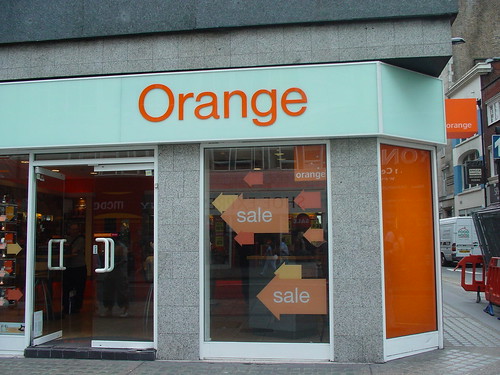
A new era for mobile phone use has begun as the UK's largest network operator unveiled plans to launch the country's first superfast 4G products and services in time for Christmas.
Orange and T-Mobile owner Everything Everywhere, which has been renamed as EE, will make the state-of-the-art technology available to some 20 million people in 16 cities across the UK.
Unveiled at the Science Museum in London, the 4G network, which offers speeds up to five times faster than 3G, will be available on HTC, Samsung, Nokia and Huawei devices, as well as "one more to come", which is widely expected to be Apple's iPhone 5.
The announcement is likely to enrage EE's competitors, including Vodafone, 3 and O2, who have threatened legal action over telecoms regulator Ofcom's decision last month to allow EE to launch 4G on its existing network.
The 4G services will allow uninterrupted access to the web on the go, high definition movies to be downloaded in minutes and TV to be streamed without buffering.
Four cities - London, Bristol, Cardiff and Birmingham - are being switched on initially for the company's engineers to begin live testing and systems integration in readiness for the customer launch.
EE gave no specific date but said 4G will be available to its customers by Christmas in London, Edinburgh, Cardiff, Belfast, Birmingham, Bristol, Derby, Glasgow, Hull, Leeds, Liverpool, Manchester, Newcastle, Nottingham, Sheffield and Southampton.
The group plans to roll out the service to further towns, cities and rural areas next year, with population coverage of 70% and rising to 98% in 2014.

The rampant growth at Burberry showed signs of wavering as the luxury fashion house warned its profits would be at the bottom end of expectations.
The group, which has 196 retail stores, 207 concessions, 48 outlet shops and 58 franchise stores worldwide, said like-for-like sales ground to a halt in the 10 weeks to September 8 and have started to fall over recent weeks. Total sales including new space were up 6%.
The luxury goods firm, famous for its red, black and camel check, warned adjusted pre-tax profits for the year to March 31 will be around the lower end of market expectations.
Burberry, which was founded in 1856, spent much of the year bucking the gloomy trend in the wider retail sector due to its exposure to robust emerging markets, especially China.
Burberry chief executive Angela Ahrendts warned the external environment was "becoming more challenging". She added: "Given this background, we are tightly managing discretionary costs and taking appropriate actions to protect short-term profitability."
The flat like-for-like sales in the second quarter so far are a sharp slowdown from the 6% hike reported for the first quarter to June 30.
Burberry reported a 24% surge in annual profits to £366 million in its last financial year, while total revenues were also up 24% to £1.9 billion as key Asian markets showed more strong growth and flagship stores in London and Paris performed well.
Burberry previously announced plans to add a further 12% to 14% of selling space in this financial year but did not give details of store openings in its update.
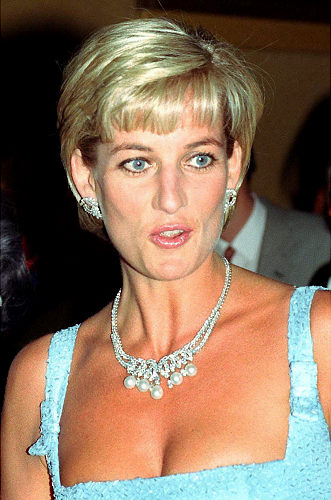
Dozens of bouquets of flowers, posters and cards were left at the gates of Kensington Palace on Friday as Princess Diana was remembered on the 15th anniversary of her death.
Tourists, well-wishers and passers-by took photos and read the tributes at the royal residence in the British capital, Diana's official home from 1981 until her death, just as they had done in far larger numbers 15 years before.
Diana died aged 36 in a car crash in a Paris road tunnel on August 31, 1997 alongside her companion Dodi Fayed, triggering an outpouring of grief from much of the British public.
Within hours, a carpet of flowers had begun to spread out in front of the palace and many Britons threw off their reserve and mourned openly.
In one of the defining moments of his time in office, then prime minister Tony Blair described her as the "people's princess", striking a chord with the grieving nation.
Fifteen years on from that day Maria Scott, 41, who travelled from Newcastle in northeast England to visit the temporary memorial, said she had made the journey every year since Diana's death.
"Diana should be remembered because she's the mother of our future king and she should never be forgotten," Scott said.
"To the country I would say this tribute means a lot and I would like to think William and Harry would like this as well, that we are remembering their mother and all of her humanitarian work as well.
"She wasn't afraid to go the extra mile for anybody."
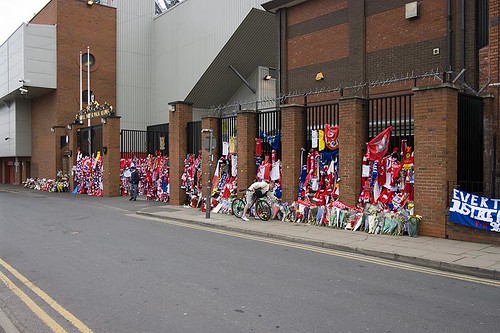
Thousands of official documents relating to the Hillsborough disaster will be published for the first time this week.
The papers, some of which had been covered by the 30-year rule, come from the files of 80 organisations including the Government, South Yorkshire Police, Sheffield City Council, the South Yorkshire coroner and the fire and ambulance services.
The families of the 96 football fans who died in Britain's deadliest sporting disaster will have the first access to more than 400,000 pages on Wednesday morning. Later that day a statement is expected to be made to MPs in the House of Commons.
A report explaining the contents of the documents will be published by the Hillsborough Independent Panel, which has been overseeing the release.
The 96 Liverpool supporters died in a crush at Sheffield Wednesday's Hillsborough stadium on April 15, 1989 where their team were to meet Nottingham Forest in an FA Cup semi-final.
A report into the disaster by Lord Justice Taylor, published in 1990, found that the main reason for the disaster was a failure of "police control".
The victims' families say it is an injustice that no individual or organisation has been held fully accountable for the disaster. They believe a Major Incident Plan was never initiated by South Yorkshire Police and fans in the Leppings Lane end were denied emergency medical attention.
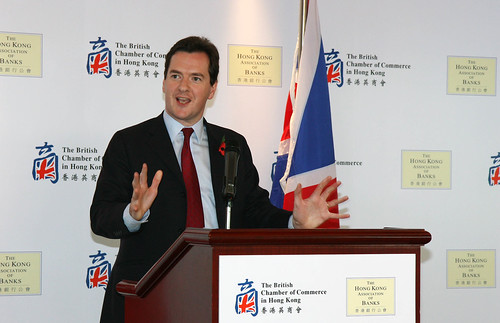
Chancellor George Osborne has insisted there is still an economic case for Scotland to stay within the United Kingdom.
Mr Osborne entered the independence debate during a visit to Glasgow, where he gave a speech to business leaders at the annual Confederation of British Industry (CBI) Scotland dinner.
He said there is more to Unionism than "wallowing in nostalgia".
Setting out his case for a No vote in late 2014, he accused Scotland's First Minister Alex Salmond of failing to provide a credible answer to his plan for a shared sterling currency union.
"Today the advocates of independence argue that Britain's value to Scotland is spent, that union is no longer in Scotland's economic interests and that those who continue to believe in Britain are wallowing in nostalgia," said Mr Osborne.
"I want to take this argument head-on. I make no apology for sharing all of the instinctive emotional attachment to Scotland's place within the UK. Our shared history and culture, distinct yet intertwined identities, a whole greater than the sum of its individual parts.
"In a world in which a separate, independent Scotland wished to pursue divergent economic policies, what mechanism could there be for the Bank of England to set monetary policy, as it does now, to suit conditions in both Scotland and the rest of the UK?

"Heads must come out of the sand" about the scale of immigration to Britain, a Conservative MP has said.
Nicholas Soames, MP for Mid Sussex, warned MPs the "stakes are indeed very high" with very difficult decisions to take against "unforgiving" timescales.
The issue of immigration was, he said, of "fundamental importance to the future of the country".
He added that a Commons debate had been chosen by the Backbench Business Committee in response to a petition launched by MigrationWatch on the Government's website last autumn, which received more than 100,000 signatures within a week.
He said: "This is a clear indicator of the very great public concern about the scale of immigration to this country."
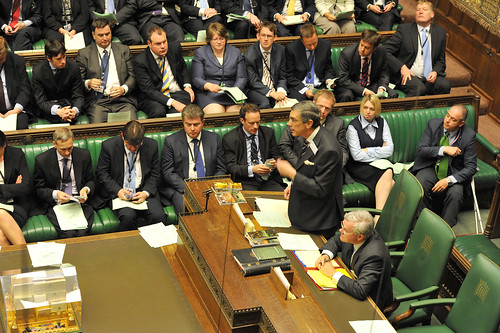
The bill for MPs' expenses went up by a quarter to nearly £90 million last year, it has been disclosed.
Politicians spent the money on second homes, staff, travel and office costs - including dozens of iPads.
The figure is now only slightly lower than in the run-up to the scandal that rocked Westminster in 2009.
But the Independent Parliamentary Standards Authority (Ipsa) insisted that the rate of claims had remained "stable".
Although the total outlay for 2010-11 had been £71 million, that was misleading because of the impact of the general election.
Chairman Sir Ian Kennedy said "like for like" the rate of claims had been about the same last year, and 99% were within the rules.

Retailers failed to bask in the glow of Team GB's Olympic success last month as the sector suffered its worst sales this year, figures have shown.
Retail sales values were down by 0.4% on a like-for-like basis last month, said the British Retail Consortium (BRC). This was the lowest since November last year (excluding April, which was heavily distorted by Easter timings).
The sporting event gave a mild boost to food sales in the form of party food and drink but the net effect of the Games was minimal as lower footfall in London hit sales, it said.
Stephen Robertson, director general of the BRC, which represents some 60% of retailers, said: "It's clear people were absorbed by the magnificent Olympics and had little interest in shopping, especially for major items."
The research will fuel fears over Britain's economic recovery as the country struggles to emerge from the longest double-dip recession since the 1950s. The most notable impact from the Olympics was felt online, which saw growth of 4.8% in August, the lowest since the BRC started collecting data on internet sales in October 2008.
Warmer weather in the middle of August helped boost sales of food, especially party snacks such as crisps, nuts and barbecue foods. Clothing had an "unusual and rather disappointing" month, the BRC said, as womenswear retailers failed to attract customers to autumn/winter ranges.
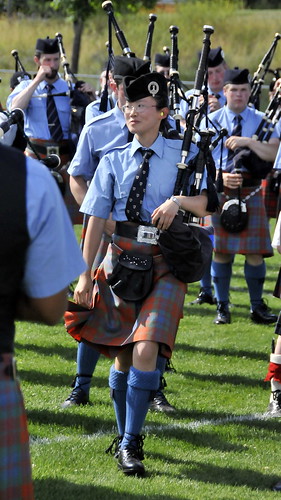
The Queen and the Duke of Edinburgh have arrived for their annual Highland Games outing.
The Braemar Gathering is held each year just a short distance from Balmoral Castle in Aberdeenshire, where the royals spend their holidays.
Prince Philip has been at the Balmoral estate since being discharged from Aberdeen Royal Infirmary on August 20 where he spent five nights receiving treatment for a recurrence of a bladder infection.
He accompanied the Queen, who is patron of the Games, to watch a series of traditional events, including the tossing of the caber and the tug of war.
The Games, held at the Princess Royal and Duke of Fife Memorial Park, take place on the first Saturday of every September and regularly attracts visitors from around the world to the village.
Last weekend, the Duke made his first public appearance since leaving hospital when he attended a church service at Crathie Kirk.










